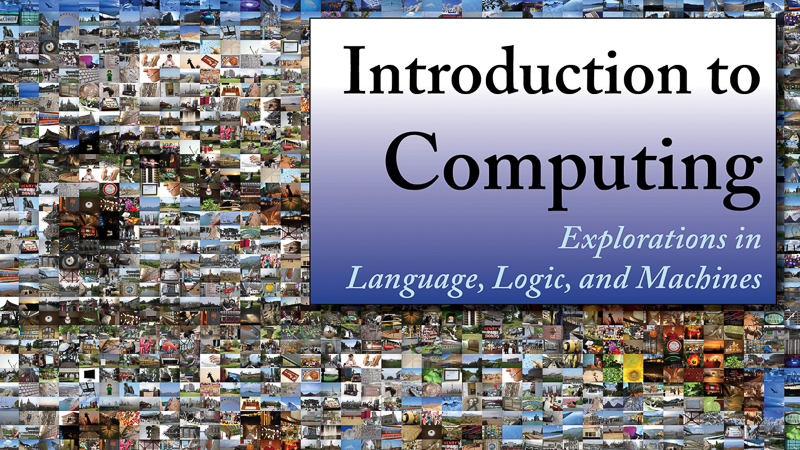cs1120: Introduction to Computing
Explorations in Language, Logic, and Machines
Announcements
2 May: Class 39 (Where to Go From Here) and Final Survey
29 April: Class 38 (Big Questions about Hard Problems)
27 April: Class 37 (Art and Computing) — guest class by Jack Doerner
25 April: Class 36 (What Cannot Be Computed)
22 April: Class 35 (On Computable Numbers)
20 April: Class 34 (Finishing the Interpreter)
18 April: Class 33 (Exploring the Interpreter)
15 April: Class 32 (Interpreters)
13 April: Class 31 (Turing Machines)
11 April: Class 30 (Modeling Computation) and Project 6: Charming Snakes
8 April: Class 29 (The Forrest and the Trees)
6 April: Class 28 (Growing Trees)
4 April: Class 27 (Trees and Logs)
1 April: Class 26 (Complexity and Subclassing) - also see for notes on syncing your Project 5 repository
30 March: Class 25 (Sorting and Searching) (Guest lecture by Yuchi Tian)
28 March: Class 24 (Object, Classes, and Go)
25 March: Class 23 (Golden Ages)
23 March: Class 22 (Andy Grove, Becoming Blue Belts)

Previous Offerings at UVAFall 2012 (taught by
Westley Weimer) Earlier versions including the first offering: |
Open On-Line CourseUdacity cs101: Introduction to Computer Science
Open on-line course in-part loosely derived from cs1120 (first Udacity course, launched in 2012).
[Story of Course] [Prospect Magazine] [Chronicle] |